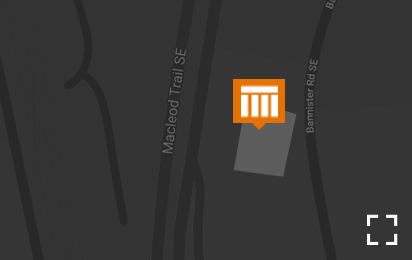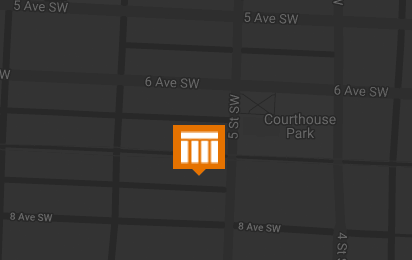Publication
Condominium Corporations vs. Homeowners Associations
Many do not understand the differences between Condominium Corporations and Homeowners Associations.
It is important to note that Homeowners Associations and Condominium Corporations are separate legal entities with separate rights, responsibilities and available remedies. Homeowners Associations are not restricted to condominium developments. A Homeowners Association can exist and operate independent of any relationship with a Condominium Corporation.
An owner of a condominium will have financial responsibilities to the Condominium Corporation. An owner of property within a Homeowners Association will have financial responsibilities to the Association. In condominium projects where the owners are also members of a Homeowners Association, the owners will have separate and distinct financial responsibilities to each. Unless the Condominium Corporation assumes responsibility to pay Homeowners Association fees on behalf of its owners, payment of condominium fees will not satisfy the independent obligation to pay the Homeowners Association fee. Payment of property taxes to the City has no impact on an owner’s fee obligation to either the Condominium Corporation or the Homeowners Association.
Participation in Condominium Corporations or Homeowners Association is not voluntary. You will be a member in either simply by virtue of where your home is located, and could be a member of both. There are many similarities between Condominium Corporations and Homeowners Associations, with both imposing financial obligations upon the owner of a property. There are also many differences and again, satisfying your obligations to one does not mean that you are in good standing with the other.
A Condominium Corporation is created upon registration of the Condominium Plan with the Land Titles Office. It operates pursuant to the provisions of the Condominium Property Act. It is not a company or corporation in the strictest sense, but rather a form of communal living with Owners making up the membership.
The Corporation will be responsible for the control, management and administration of common property and may have other obligations or responsibilities placed on it through the Bylaws. The Bylaws of the Corporation can be amended by special resolution of the owners which requires approval by 75% of owners representing at least 7500 unit factors. Accordingly the responsibilities of the Corporation for maintenance and repair can be expanded or diminished by Bylaw amendment.
The Corporation must provide financial statements to the Owners on a yearly basis with a budget outlining anticipated common expenses, but there is no requirement for the annual returns to be filed. The operating expenses of the Condominium Corporation are paid through contributions made by the Owners and the Corporation must have a reserve fund to cover major repairs and replacement that is necessary as property ages. In the event an Owner fails to provide payment of their contributions, the Corporation may register a Caveat on title which is the equivalent of an equitable mortgage at law.
Thereafter the Condominium Corporation has all the rights and abilities that a bank would have to pursue collection, including foreclosure proceedings. The documents of the Condominium Corporation, for instance the Bylaws and the Condominium Plan, are registered with and found through the Land Titles Office.
A Homeowners Association is created by the developer of a community at the beginning of the development. It is incorporated as a not-for-profit Company under the Companies Act or Society under the Societies Act.
Usually the Homeowners Association concept is utilized to have it assume responsibility for maintenance and control of common lands within the community, often with the main purpose being beautification of the community. In addition the Homeowners Association can take on additional responsibilities relating to individual lots or condominium units within the project. The intent is to maintain the community at a high standard. Examples include community signage, entrance features, water features, amenities centres, parks, landscaping, snow removal, and can include lakes though the lake can be a separate entity in some communities.
The purpose for which the Homeowners Association was incorporated and the procedures by which it operates will be outlined in the Articles of Association and the Bylaws. The Bylaws will create the financial responsibility of an owner to pay fees to the Association and an Encumbrance will be registered on title as security in favour of the Association for fee payment.
The specifics of the duties and responsibilities of the Association relating to maintenance and repair will be outlined in an agreement between the Association and all homeowners which agreement will be registered on title to each property. This agreement is signed when the developer is the owner of all individual properties and all subsequent owners will be subject to the agreement. Unlike a Condominium Corporation these duties and responsibilities can only be changed by amendment to the agreement which requires unanimous consent of all owners within the Association.
In the event an Owner fails to provide payment of the fees owed to the Homeowners Association, like the Condominium Corporation, the Encumbrance gives the Association the equivalent of an equitable mortgage which gives the Association the same rights and remedies as a bank.
The Association has similar obligation as a Condominium Corporation regarding budgets, annual financial statements and annual general meetings. Unlike a Condominium Corporation a reserve fund is not a mandatory statutory requirement. Reserve fund requirements may be outlined in the Articles of Association and Bylaws. The documents of the Homeowners Association, for instance the Articles of Association and Bylaws, are registered with and found through the Corporate Registry.
For further information about this or other issues relating to Condominium Corporation or Homeowners Association living please contact one of the authors or another member of our Condominium Law Group.

